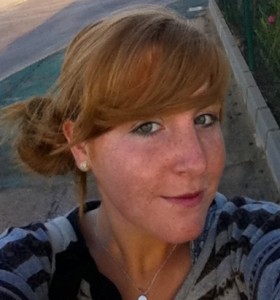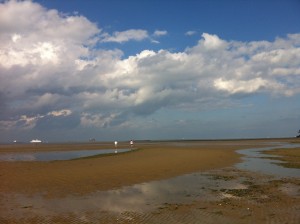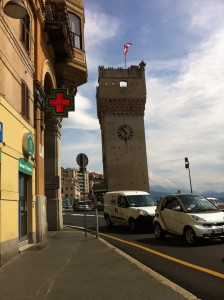Autobiography -Modern Languages Student / Traveller extraordinare

My name is Katie Churchill, and I come from the Isle of Wight in the south of England – yes, the tiny dot usually missed out on large maps of England. I grew up in a beautiful costal town called Ryde:

During my high school years I studied at Ryde school with Upper Chine, which had an international 6th form. It was this school in Ryde that introduced me to people from many countries and backgrounds, and was therefore a large influence in my choosing to study languages at university level; being naturally ficcanaso and wanting to know what people were saying.
In terms of my background, I would say I am from a very diverse family. My mother and her relatives are mostly from Cyprus, whereas my father was born in Ireland and has both Welsh and English parentage – so I like to think of myself as a sort of international-exotic hybrid.
Although I grew up on the Isle of Wight, my father’s parents live in a beautiful place called Murcia in Spain. It is here that I usually spend the summer months of my life – in the sweltering 45 degree C heat of Spain; a great idea for someone of a somewhat pale complexion I realise. During these summer months I have done waitressing and worked in a local bar called The Celt. “How fantastic for your Spanish” you may state mockingly. Fortunately for me, this bar is not only “home” to both English and French tourists in the summer months, but also to Spanish locals with whom I have been able to practice my Spanish (Muricano style) on a daily basis and discuss enthralling topics such as 1) how to make the best sangria, 2) who is winning the football? Just a few of the many topics I have the great fortune to discuss.
At Southampton University, I have studied and am studying a multitude of languages. For example, in my first year of University I studied French, Spanish and Russian. Then, in my second year I decided to continuing frequenting Russian lessons, but I changed my degree to French, Spanish and Italian. I am very happy with this choice, as after having studied only 1 year of Italian, I have learnt enough Italian to enable to me go and stay in a place called Savona in North Italy and take on a job as an au-pair/ Tata/ English teacher (this summer).

My favourite modules at the University have been The Making of Modern French in first year, and Italian Accelerated (1&2) this year. Both of these modules have been highly interesting to me and were taught fantastically well by Gabriele Budach and Alessia Plutino who managed to teach these modules in interesting and innovative ways.
For my year abroad, I will be teaching French as an Assistante d’anglais at the CLG Benjamin Franklin in a place called Épône, in north-central France. I have not yet been informed of the exact age group I will be teaching, but as it’s a clg I presume the children will be between 11 and 15 years old.
Concerning my YARP project, I have realised in the past few years that my French friends have increasingly used/ posted and commented on social media such as Facebook, Twitter etc in English. This has led me to wonder both why they are commenting in English, and also if the large use of English on social media has impacted their use of English i.e. do they learn English in order to be able to understand what their favourite anglophone celebrities are saying? Do they see something in English that they don’t understand on social media and therefore translate it and learn the English for it? With so many unanswered questions about social media (which we use more and more each day) I hope use my YARP to research and analyse the use of English by French native speakers on social media and to see what impact this use has on their use and learning of English. This project leaves a large scope for other questions. For example, in my YARP I could also look at the use of English in the town of Épône in terms of how much is/ isn’t used, the reasons why it is/ isn’t used, who uses it/ doesn’t use it etc, as this may also have an impact of the learning of English for young people in the area.


Leave a Reply